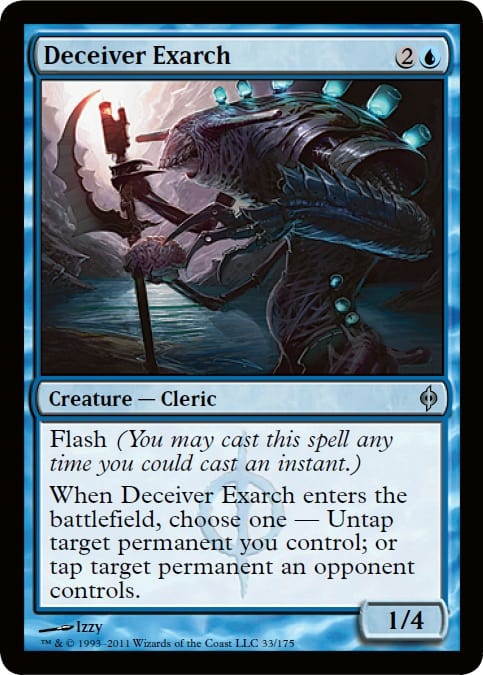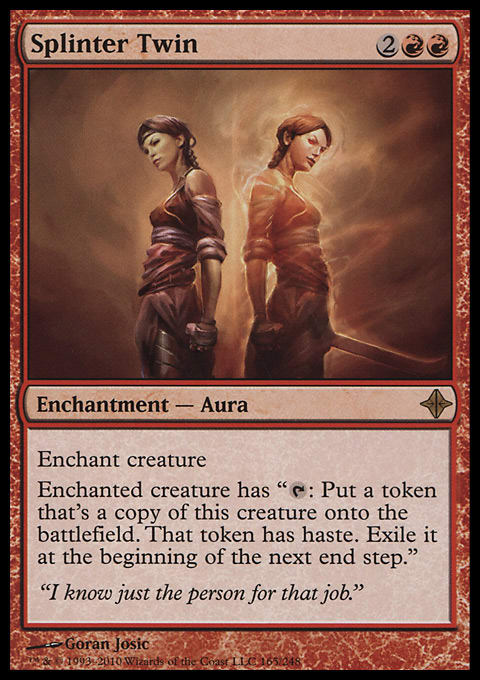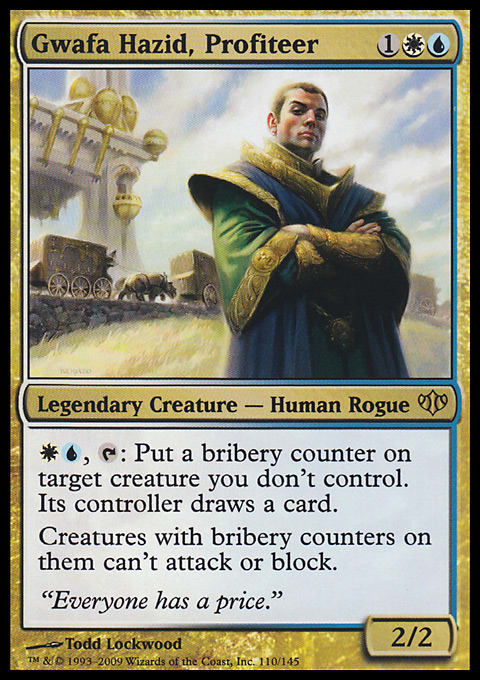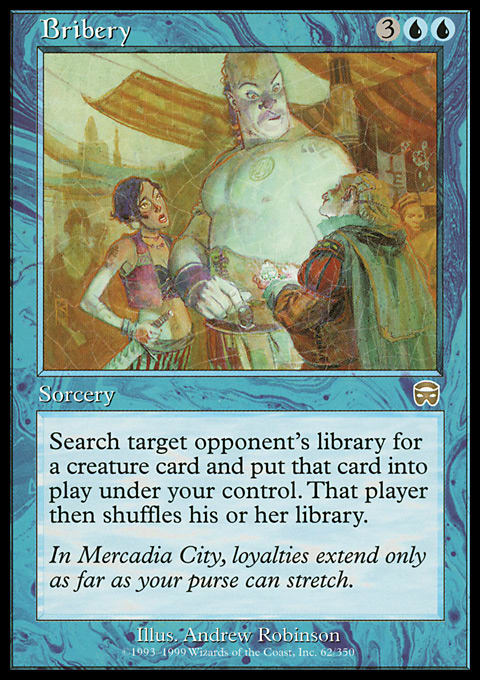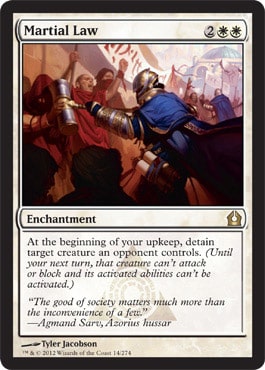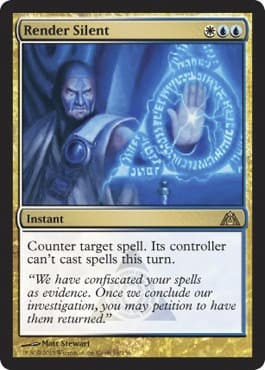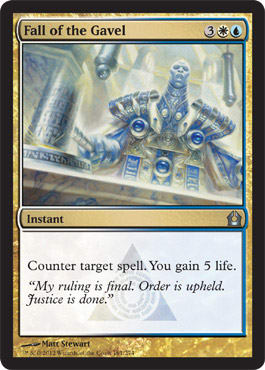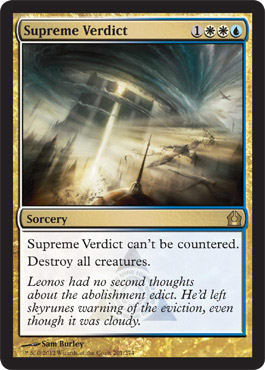Last week, I discussed my belief that combining mechanics and flavor into one seamless package can be much more beneficial to a game than keeping mechanics and flavor separate. I called this blending of mechanics and flavor “Melthos.” This week, we dive deep into the Melthos mentality, specifically covering how thinking like a Melthos can lead to a more rewarding deck-building and gameplay experience. We will also take a look at a Melthos Commander deck, designed by one of the Magic community members.
Deck-Building with Melthos
Before I get started, I want to do a quick rehash on what exactly the Melthos mentality is. If you feel that you have a solid grip on what it means to be in the Melthos mindset, feel free to skip ahead.
A Melvin evaluates based on thought. Usually, a Melvin will over-appreciate things such as mechanics, game states, card interactions, game rules, and bottom-up design because those things are analytical and spark Melvin’s problem-solving thought process.
Melvin decks are ones in which everything interacts mechanically perfectly, but in which the flavor is nonsensical. Great examples of Melvin decks are Splinter Twin decks and Eggs. In the Splinter Twin deck, you are enchanting a Phyrexian priest with the ability to indefinitely clone himself instantly and attack with infinite creatures. For the Eggs deck, you are breaking open a whole bunch of egg-like artifacts over and over and over again in the correct sequence in order to bore your opponent to death.
A Vorthos evaluates based on feeling. Usually, a Vorthos will over-appreciate things such as names, flavor text, art, and top-down design because those things are evocative and capture Vorthos’s imagination.
Vorthos decks are ones in which the art and story being told by the deck take center stage. The name of each card within the deck is of the utmost importance. Vorthos will cram a deck filled with his favorite cards with all the best art, flavor text, and story moments. A Vorthos doesn’t worry so much about having the mechanically strongest cards, but more about having the best flavor. How does the deck play? Who cares about that? Have you read the flavor text on the revised Drudge Skeletons I have in here? And the art on these Phyrexian Slayers is epic!
What does it mean to build a deck with the Melthos mentality? A Melthos cares about the mechanics and the flavor. A Melthos builds his or her deck with a particular story in mind. Not only does he or she want to make use of cards that have outstanding art and flavor, but Melthos also wants his or her deck to play in a way that complements that flavor. R&Ds design philosophy surrounding both Innistrad block and Theros block are great examples of the mentality. For Innistrad, R&D wanted to create dread and fear in the players, so they created mechanics that, when played during the game, would invoke a sense of fear into the opponent you were facing. For Theros, they wanted to instill a sense of epic accomplishment. The heroic mechanic was one way R&D delivered on this, by allowing you to build up an epic hero to defeat your foe.
I strongly believe that this mentality should be carried over into deck design by the players. By creating a Melthos deck that blends mechanics and flavor, one is able to craft an experience for the other players in the game. When you build a Melthos deck, the game becomes about something more than just seeing who can beat the other opponent first. When you do battle with a deck meant to evoke a feeling or an emotion in your opponents, you win as long as your opponents felt what you were trying to make them feel.
Sure, everyone wants to win, as it is a game of skill. What I am suggesting is that if each player brings to the table a specially crafted experience meant to evoke different feelings in the players at the table, everyone wins. Whether you leave that game the champion or not, you can feel that you experienced something new and interesting and flavorful. By building a deck that is trying to create an experience, you can improve the game for everyone involved, creating memorable games.
In order to better illustrate how you can build a Melthos deck, I will discuss the following deck provided by MTG reddit member Boscobeans:
Gwafa Hazid, Profiteer ? Commander | Boscobeans
- Commander (0)
- Creatures (11)
- 1 Archon of Justice
- 1 Azorius Guildmage
- 1 Azor's Elocutors
- 1 Deputy of Acquittals
- 1 Gideon's Lawkeeper
- 1 Grand Abolisher
- 1 Judge's Familiar
- 1 Soulsworn Jury
- 1 Stern Judge
- 1 Wall of Denial
- 1 Isperia, Supreme Judge
- Planeswalkers (1)
- 1 Gideon, Champion of Justice
- Spells (48)
- 1 Absorb
- 1 Avenging Arrow
- 1 Azorius Charm
- 1 Banishment Decree
- 1 Celestial Purge
- 1 Dispense Justice
- 1 Divine Verdict
- 1 Fall of the Gavel
- 1 Forbid
- 1 Harsh Justice
- 1 Inquisitor's Snare
- 1 Render Silent
- 1 Restore the Peace
- 1 Sphinx's Revelation
- 1 Statute of Denial
- 1 Swift Silence
- 1 Balance of Power
- 1 Bribery
- 1 Day of Judgment
- 1 Decree of Justice
- 1 Divine Reckoning
- 1 End Hostilities
- 1 Restore Balance
- 1 Supreme Verdict
- 1 Absolute Grace
- 1 Absolute Law
- 1 Arrest
- 1 Burden of Guilt
- 1 Detention Sphere
- 1 Ghostly Prison
- 1 Karmic Justice
- 1 Land Tax
- 1 Martial Law
- 1 Mask of Law and Grace
- 1 Prison Term
- 1 Propaganda
- 1 Reparations
- 1 Rhystic Study
- 1 Righteous Authority
- 1 Royal Decree
- 1 Rule of Law
- 1 Sphere of Safety
- 1 War Tax
- 1 Azorius Cluestone
- 1 Azorius Keyrune
- 1 Azorius Signet
- 1 Briber's Purse
- 1 Vedalken Shackles
- Lands (39)
- 16 Island
- 16 Plains
- 1 Azorius Chancery
- 1 Azorius Guildgate
- 1 Evolving Wilds
- 1 Glacial Fortress
- 1 Prahv, Spires of Order
- 1 Temple of Enlightenment
- 1 Terramorphic Expanse
A criminal justice student who plays Magic with other law students, Boscobeans built this deck in order to showcase the darker side of the W/U color combination. It is easy to label white as the good-guy color, so I can always appreciate when someone is able to showcase white’s more evil side.
Bosco built this deck in order to show what can happen when W/U decides to use its powers, creating laws that are only beneficial to itself and using its political standing to bribe and cheat its way to victory. A fantastic example of the more “evil” W/U combination is the character Frank Underwood from the Netflix series House of Cards. For those of you who have not watched this show yet, Frank is a powerful politician who will not hesitate to use every dirty, underhanded tactic and abuse every resource at his disposal in order to further his own aspirations for power.
Taking that Idea, Bosco started with his commander:
Gwafa is the perfect Melthos commander for this deck. As a 2/2 for 3, he is not the most threatening creature on the battlefield and will most likely not be ending someone’s day via commander damage. His mechanics beautifully fit the theme we are going for, bribing other players with “wealth” in the form of card advantage. This card is a great example of Melthos design. The art, flavor, and mechanics all come together and create a complete package that plays exactly the way you would expect a crooked rogue, politician, and/or profiteer to play. The ability showcases how the character is abusing the system in order to further his own goals, creating a narrative through the mechanics of the game.
Does your opponent have a dangerous threat on the table? “Pay” that player with card advantage in order to prevent that threat from coming your way. Sure, you might be fueling the opponent with the card he or she needs to get rid of your Gwafa, but that is a risk you need to be willing to take if you want to claw your way to the top. Gwafa is going to beat you on his terms, and he will manipulate the board state in order to ensure he will always come out on top.
Bosco did not stop there. The cards chosen for this deck perfectly represent the Melthos mentality through their names, art, flavor, and mechanics, all coming together in order to craft a play experience that both looks and feels like you are playing with (or against) a crooked master of the law.
Bribery
One aspect of Boscobeans’s deck is meant to play up the idea of a crooked individual in power who is using his or her wealth in order to pull ahead. Playing cards like Bribery and Briber's Purse is an excellent way to exhibit this idea through gameplay. When you are able to resolve Bribery in a multiplayer game, each of your opponents will feel as though he or she is being betrayed by his or her best creature as it attacks that player from your side of the battlefield. Briber's Purse allows you to further Gwafa’s power and wealth, buying off your opponents’ creatures and preventing them from attacking or blocking at the cost of your mana.
False Imprisonment
Boscobeans’s deck also hits on the idea of false imprisonment and highlights white and blue’s ability to restrain creatures against their will with no probable cause whatsoever. Martial Law is a marvelous example of white going on a “detain rampage,” locking down anything and everything it deems a threat to its own ideals and goals. When Martial Law is on the battlefield, you will literally take on the role of a sheriff (or meriff for you borderlands fans out there), throwing down the law on whomever you see fit. A card like Arrest is a great addition, and the Melthos mentality really shines through when the Return to Ravnica version of the spell is used in the deck. Both the art and the flavor text help to add to the feeling the deck is trying to invoke in its opponents. “We will prove your guilt. We don’t arrest the innocent, you know.”
Crooked Laws
Some of the cards within Boscobeans’s deck play up the idea that crooked politicians in power have the ability to create laws that will be a benefit for them, but harmful to another group of individuals (most likely their enemies). Laying down an absolute law invokes a sense of prejudice against red players at the table, declaring that “red is the enemy” and encouraging other players to capitalize on the crooked law. Royal Decree is a more direct, but equally flavorful, ability. When you establish your decree over the battlefield, black and red players will complain and call the ruling “unfair” as they begin to feel the pressure of its oppressive ruling.
Harsh Verdicts
Finally, Boscobeans plays up white and blue’s ability to decide on a final verdict. At the end of the day, it comes down to what the judge and jury decide. Render Silent and Fall of the Gavel are fantastic complements to the deck, allowing the player to not only protect the laws he or she already has in place, but ensure that some of his or her more corrupt tactics go through unhindered. Imagine casting a Bribery only to have another player cast Cancel. You cast Fall of the Gavel in response, countering the Cancel and ensuring that your decision to be a corrupt politician is final.
Boscobeans shared with me that one of his favorite things to do in his Commander games while playing this deck is to slam Render Silent onto the table when he casts it, proclaiming, “I WILL HAVE SILENCE IN MY COURTROOM!” while doing so. There are even instances when the deck needs to drop a final and powerful verdict onto the battlefield:
Boscobeans is constantly updating this decklist with cards that will better illustrate through both flavor and mechanics what it would be like to play as or against a crooked politician. If you would like to view his latest version of the deck, feel free to check it out here.
Melthos decks go beyond mechanical interactions or great flavor. By finding a combination of mechanics and flavor, a Melthos deck can craft a play style that perfectly encapsulated the theme or idea that you are attempting to capture through gameplay. By crafting a story through the mechanics of the cards you are playing, your opponents will not need to have the flavor of your deck explained to them; instead, they will experience that story for themselves. I don’t know about you, but I would much rather lose to a deck that plays like a crooked politician laying down unfair laws and paying off my creatures than be pecked to death by a massive mana bird studying kung fu.
Try building for yourself a deck that tells a story through its mechanics, and encourage your playgroup to do the same. Praise each other on their unique and flavorful card choices that create gameplay scenarios that perfectly encapsulate the feelings they are trying to evoke. Embrace the flavor of the cards, and you will craft some memorable experiences for your entire group. Let’s do away with decks that forgo flavor in favor of efficiency and start crafting gameplay experiences that evoke interesting and unique narratives that would be fun for everyone involved.
So I challenge each and every one of you to bring a Melthos deck to your next kitchen-table event. Have something in mind that you want your opponents to experience. Try creating a deck around fear, chaos, or deception, or even test out Boscobeans’s crooked-politics-themed deck. Whatever choice you make, try to craft a deck that will invoke that feeling in your opponents. I guarantee if you do, everyone will walk away from that game feeling like a winner.














